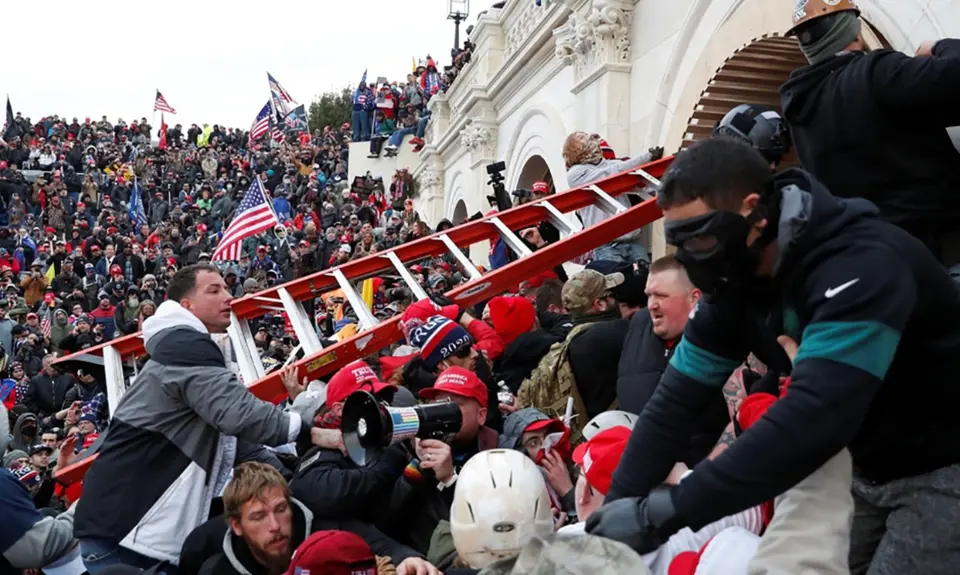Judge Florence Pan, nominated by President Biden to the US Court of Appeals for the DC Circuit, wrote a 2-1 opinion that reversed a Trump district judge and ruled that January 6 rioters can be prosecuted under a law banning obstruction of official proceedings. The April 2023 decision in United States v Fischer may also facilitate prosecution of former President Trump for election subversion.
What’s this Case About?
As they did with many other January 6 rioters, federal prosecutors charged Joseph Fischer, Edward Lang, and Garret Miller with violating a criminal law that prohibits “corruptly obstruct[ting]” an “official proceeding” of the government. For example, the indictment charged that Lang was a “member of the mob that forced Congress to stop its certification procedure” concerning the November election on January 6 and that he “fought against police officers in the Capitol for more than two hours.”
Even though the “vast majority” of courts have interpreted the law to apply to “all forms of obstructive conduct,” and “fourteen” other DC district judges have applied it to January 6 rioters, Trump district judge Carl Nichols disagreed. He dismissed the obstruction charges against Fischer, Lang, and Miller. He claimed that the law applies only where someone takes “some action with respect to a document, record or other object” to obstruct a proceeding. The Justice Department disagreed and appealed to the DC Circuit.
How did Judge Pan Rule and Why is it Important?
Judge Pan wrote a 2-1 decision, joined in part by Trump judge Justin Walker but to which Trump judge Greg Katsas dissented, which reversed the lower court and ruled that the obstruction charges could proceed. She explained that the “text” of the obstruction law was “unambiguous” and “applies to all forms of obstruction of an official proceeding, other than” conduct specifically related to documents and records “that is already covered” by another section of the law. She noted that precedent clearly supported this “natural, broad reading” of the law as well. Judge Walker agreed with the result as applied in this case, but wanted to more narrowly define “corruptly” to refer only to acts “with an intent to procure an unlawful benefit.”
As commentators have stated, Judge Pan’s decision is important to securing justice and accountability in literally “hundreds of January 6-related prosecutions.” In addition, as election law expert Rick Hasen has explained, Judge Pan’s interpretation of the obstruction law allows DOJ to use the statute to “charge” former President Trump with “election-subversion activities after the 2020 election” related to January 6. A “narrower reading” of the law, he went on, “could insulate” Trump, since his activities related to January 6 “were more indirect.” Both the full DC Circuit and the Supreme Court may well consider the issue. In addition, the ruling provides another illustration of the importance of promptly confirming fair-minded judicial nominees by President Biden like Judge Pan.
Judge Florence Pan, nominated by President Biden to the US Court of Appeals for the DC Circuit, wrote a 2-1 opinion that reversed a Trump district judge and ruled that January 6 rioters can be prosecuted under a law banning obstruction of official proceedings. The April 2023 decision in United States v Fischer may also facilitate prosecution of former President Trump for election subversion.
